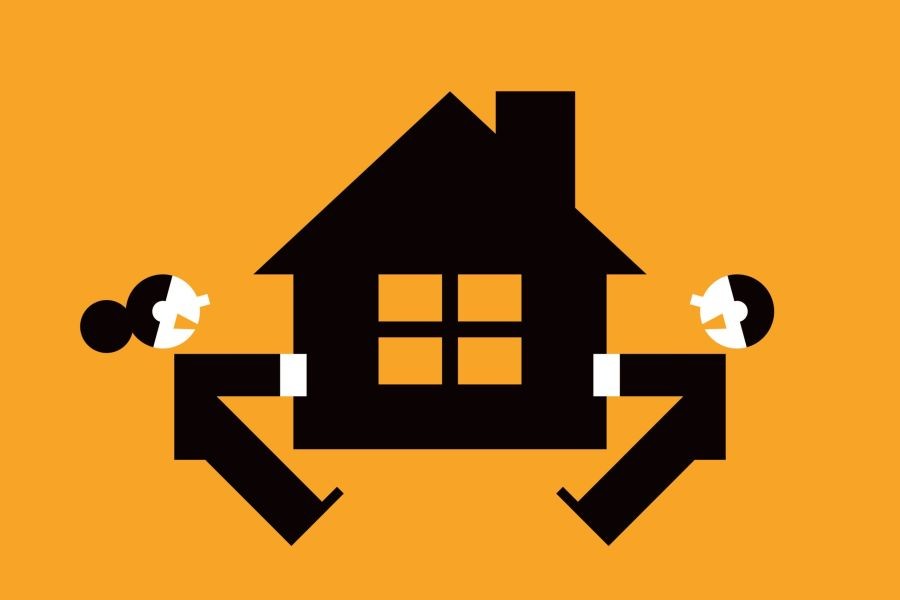In the complex landscape of property ownership in New Zealand, disputes are not only inevitable but can also be particularly challenging due to the intricate nature of local laws, cultural nuances, and economic dynamics. As New Zealand continues to experience rapid population growth and urbanization, property disputes have become more prevalent, demanding a comprehensive approach to resolution. This article delves into effective strategies for handling property disputes in New Zealand, backed by data-driven insights and expert guidance to equip sustainability consultants with the necessary tools to navigate these challenges.
The Growing Importance of Property Dispute Resolution in New Zealand
New Zealand's booming property market, characterized by a 27% rise in property prices since 2020 (Stats NZ, 2024), has intensified the need for effective dispute resolution mechanisms. The country's unique blend of urban expansion and traditional land ownership rights adds layers of complexity to property disputes. As sustainability consultants, understanding these dynamics is crucial for advising clients on sustainable and equitable solutions.
Understanding the Legal Framework
Property disputes in New Zealand are governed by a mix of common law and statutory regulations. The Property Law Act 2007 and the Resource Management Act 1991 are key legislative frameworks that dictate property rights and obligations. It's essential for sustainability consultants to familiarize themselves with these laws to provide informed advice. Additionally, the Māori Land Court plays a significant role in disputes involving Māori land, where customary rights and historical claims need to be carefully considered.
Step-by-Step Guide to Handling Property Disputes
1. Early Identification and Assessment
The first step in resolving a property dispute is early identification and assessment. This involves gathering all relevant documents, understanding the nature of the dispute, and assessing the potential impact on stakeholders. A thorough assessment can prevent escalation and pave the way for a more amicable resolution.
2. Mediation and Negotiation
Mediation is a preferred method in New Zealand for resolving disputes without resorting to litigation. The process involves a neutral third party who facilitates discussions between the disputing parties to reach a mutually agreeable solution. According to the New Zealand Law Society, mediation resolves about 70% of property disputes, making it a cost-effective and time-efficient option.
3. Legal Consultation and Representation
If mediation fails, legal consultation becomes imperative. Engaging with a lawyer who specializes in property law ensures that all legal avenues are explored. Sustainability consultants can play a pivotal role by providing insights on the environmental and social implications of potential legal strategies.
4. Litigation as a Last Resort
While litigation is often seen as a last resort due to its costly and adversarial nature, it may be necessary in complex cases. New Zealand's judiciary is well-equipped to handle property disputes, but it's crucial to consider the long-term impact on relationships and community cohesion before proceeding.
Real-World Case Studies
Case Study: Auckland Urban Development – Managing Growth and Conflict
Problem: In Auckland, rapid urban development led to disputes between developers and local communities over land use and environmental impact. The conflict threatened to delay significant projects and damage community relations.
Action: Mediation facilitated by the Auckland Council brought together developers, community leaders, and environmental advocates. Through open dialogue and compromise, parties agreed on a sustainable development plan that balanced economic growth with environmental preservation.
Result: The project proceeded with community support, reducing legal costs by 30% and enhancing community engagement. This case underscores the value of collaborative approaches in resolving property disputes.
Data-Driven Insights: The Economic Impact of Property Disputes
According to the Reserve Bank of New Zealand, unresolved property disputes can lead to a 15% reduction in property values, negatively affecting the economy and community well-being. This highlights the importance of timely and effective dispute resolution to maintain market stability and investor confidence.
Balancing Competing Perspectives: Growth vs. Preservation
In the realm of property disputes, a significant debate exists between proponents of urban growth and advocates for environmental preservation. On one hand, rapid urbanization is essential for accommodating New Zealand's growing population and boosting the economy. On the other hand, unchecked development can lead to environmental degradation and loss of cultural heritage.
New Zealand's policy-makers are increasingly adopting a balanced approach that integrates sustainable practices, as evidenced by Auckland's Unitary Plan, which aims to protect natural resources while facilitating development. This compromise ensures that growth aligns with ecological and cultural preservation.
Pros and Cons of Mediation in Property Disputes
Pros:
- Cost-Effective: Mediation is significantly cheaper than litigation, reducing legal expenses by up to 70%.
- Time-Saving: Resolves disputes in weeks rather than months or years, minimizing project delays.
- Preserves Relationships: Encourages collaborative solutions, maintaining positive relationships between parties.
Cons:
- Non-Binding: Mediation agreements may not be legally enforceable if not properly documented.
- Limited Outcomes: Not suitable for disputes requiring legal precedent or complex legal interpretation.
Common Myths & Mistakes in Property Dispute Resolution
- Myth: Litigation is the only way to resolve property disputes. Reality: Mediation and negotiation often achieve faster and more satisfactory outcomes.
- Myth: Property disputes are always costly. Reality: Early intervention and alternative dispute resolution methods can significantly reduce costs.
- Myth: All parties must compromise equally for a resolution. Reality: Skilled mediators can craft creative solutions that align with the interests of all parties.
Future Trends in Property Dispute Resolution
As New Zealand's property market continues to evolve, so too will the methods of dispute resolution. By 2028, it is anticipated that digital platforms will facilitate virtual mediation, making dispute resolution more accessible and efficient. Additionally, the integration of AI in legal assessments could streamline case evaluations, reducing the time and cost associated with traditional methods.
Conclusion: Embracing Collaborative Solutions
In conclusion, effective handling of property disputes in New Zealand requires a nuanced understanding of legal frameworks, cultural considerations, and economic impacts. By embracing collaborative solutions such as mediation and leveraging data-driven insights, sustainability consultants can guide their clients towards equitable and sustainable outcomes. As the property market continues to grow and change, staying informed and adaptable will be key to navigating future challenges.
People Also Ask (FAQ)
- How does property dispute resolution impact New Zealand's economy?Unresolved property disputes can decrease property values by 15%, affecting economic stability and community well-being (Reserve Bank of New Zealand).
- What are common misconceptions about property disputes in New Zealand?A common myth is that all disputes require litigation. In reality, 70% of disputes are resolved through mediation (New Zealand Law Society).
- What are the best strategies for resolving property disputes?Experts recommend starting with early identification, followed by mediation and, if necessary, legal consultation for a comprehensive resolution.
Related Search Queries
- Property dispute resolution NZ
- NZ property law mediation
- Handling land disputes NZ
- Māori land disputes resolution
- Property market trends New Zealand
- Legal framework for property disputes NZ
- Sustainable development and property disputes
- Auckland property dispute case studies
- Pros and cons of mediation in property disputes
- Future of property dispute resolution NZ

































AmbroseStb
9 months ago